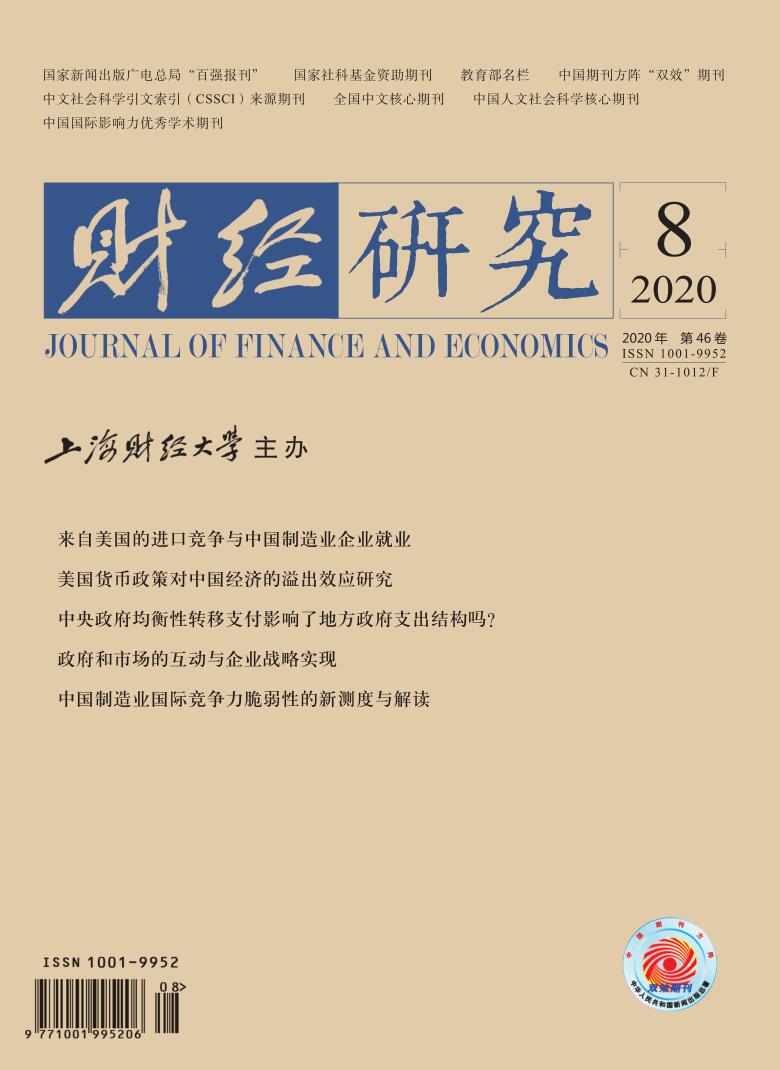文章将子女居住距离纳入农村老人居住模式对认知健康影响的研究范畴。利用中国健康与养老追踪调查数据(CHARLS)和控制可能的内生性偏误后,文章的研究显示:首先,老人夫妻同住比亲子居住更利于其认知健康,但一人独居则难有认知健康收益;其次,夫妻同住且子女同县的近邻居住对老人认知健康最有利,但随着老人年龄增长,子女近邻居住所获得的认知健康收益会逐渐下降;再次,就机制而言,主要源于家庭照料可及性对改善老人认知健康的作用,异质性分析则进一步表明,家庭照料可及性和隐私自由权的健康收益之间存在一定替代关系,且替代关系的边际平衡点在不同老人中存在差异。文章的研究为平衡传统家庭老年照料责任和子女就业发展、促进新型城镇化和“健康老龄化”的协同发展提供了决策依据。
子女近邻而居,胜于同一屋檐?——居住安排与中国农村老年人认知健康
摘要
参考文献
9 许琪. 居住安排对中国老年人精神抑郁程度的影响−基于CHARLS追踪调查数据的实证研究[J]. 社会学评论,2018,(4):47−63. DOI:10.3969/j.issn.2095-5154.2018.04.005
13 Böhme M H,Persian R,Stöhr T. Alone but better off? Adult child migration and health of elderly parents in Moldova[J]. Journal of Health Economics,2015,39: 211−227. DOI:10.1016/j.jhealeco.2014.09.001
16 Cameron L A,Cobb-Clark D. Do coresidency and financial transfers from the children reduce the need for elderly parents to works in developing countries?[J]. Journal of Population Economics,2008,21(4): 1007−1033. DOI:10.1007/s00148-006-0105-8
17 Connelly R,Maurer-Fazio M. Left behind,at-risk,and vulnerable elders in rural China[J]. China Economic Review,2016,37: 140−153. DOI:10.1016/j.chieco.2015.10.005
18 Connelly R, Maurer-Fazio M, Zhang D. The role of coresidency with adult children in the labor force participation decisions of older men and women in China[R]. IZA Discussion Paper No. 8068, 2014.
19 Do Y K,Malhotra C. The Effect of coresidence with an adult child on depressive symptoms among older widowed women in South Korea:An instrumental variables estimation[J]. The Journals of Gerontology:Series B,2012,67B(3): 384−391. DOI:10.1093/geronb/gbs033
22 Johar M,Maruyama S. Does coresidence improve an elderly parent's health?[J]. Journal of Applied Econometrics,2014,29(6): 965−983. DOI:10.1002/jae.2339
24 Kim B R. Health and living arrangements among older adults in diverse social and cultural contexts[D]. Ann Arbor: University of Michigan, 2014.
25 Lei X Y,Strauss J,Tian M,et al. Living arrangements of the elderly in China:Evidence from the CHARLS national baseline[J]. China Economic Journal,2015,8(3): 191−214. DOI:10.1080/17538963.2015.1102473
26 Lei X Y,Liu H. Gender difference in the impact of retirement on cognitive abilities:Evidence from urban China[J]. Journal of Comparative Economics,2018,46(4): 1425−1446. DOI:10.1016/j.jce.2018.01.005
27 Ma S,Wen F Q. Who coresides with parents? An analysis based on sibling comparative advantage[J]. Demography,2016,53(3): 623−647. DOI:10.1007/s13524-016-0468-8
28 Maruyama S. The effect of coresidence on parental health in Japan[J]. Journal of the Japanese and International Economies,2015,35: 1−22. DOI:10.1016/j.jjie.2014.12.001
30 McArdle J J, Smith J P, Willis R. Cognition and economic outcomes in the Health and Retirement survey[R]. NBER working paper No. 15266, 2009.
31 United Nations. World population ageing 2013[M]. New York: United Nations, 2013.
32 Van Gelder B M,Tijhuis M,Kalmijn S,et al. Marital status and living situation during a 5-year period are associated with a subsequent 10-year cognitive decline in older men:the FINE study[J]. The Journals of Gerontology:Series B,2006,61(4): P213−P219. DOI:10.1093/geronb/61.4.P213
33 Vaupel J W,Manton K G,Stallard E. The impact of heterogeneity in individual frailty on the dynamics of mortality[J]. Demography,1979,16(3): 439−454. DOI:10.2307/2061224
34 Yu Y Y,Sloan F A. Trends in elderly health by cohort:Evidence from China[J]. China Economic Review,2017,44: 282−295. DOI:10.1016/j.chieco.2017.05.001
35 Zeng Y,Wang Z L. Dynamics of family households and elderly living arrangements in China,1990-2010[J]. China Population and Development Studies,2018,2(2): 129−157. DOI:10.1007/s42379-018-0010-3
36 Zimmer Z,Korinek K. Does family size predict whether an older adult lives with or proximate to an adult child in the Asia-pacific region?[J]. Asian Population Studies,2008,4(2): 135−159. DOI:10.1080/17441730802246861
引用本文
余央央, 陈杰. 子女近邻而居,胜于同一屋檐?——居住安排与中国农村老年人认知健康[J]. 财经研究, 2020, 46(8): 49-63.
导出参考文献,格式为:






 6069
6069  7852
7852

